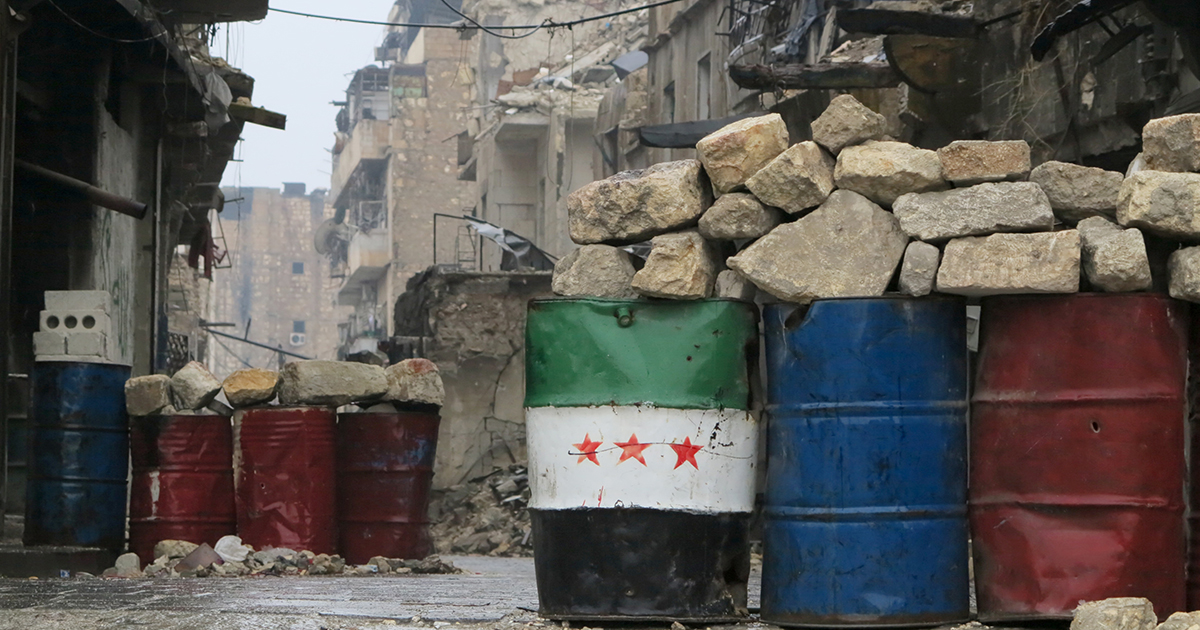This Weapon Has Changed the Conversation Around Syria

By:
Experts are now confident that the recent attack in a rebel-held region of Syria was carried out using banned chemical weapons. That detail can make a world of difference in terms of the public and international response.
.jpg?auto=format&crop=faces&fit=crop&q=60&w=736&ixlib=js-1.1.0) Getty Images/Anadolu Agency - gettyimages.com
Getty Images/Anadolu Agency - gettyimages.com
The attack, which left at least 72 people dead on Tuesday, spurred more forceful condemnations than other recent attacks in Syria, several of which have higher civilian body counts than this latest bombing. The Trump administration, which has condemned the attack, itself killed dozens of civilians just a few weeks ago when U.S. bombs slammed into a packed mosque in Aleppo.
"Targeting civilians with chemical weapons is a particularly awful way to target them because it's indiscriminate — and the images that we have from the ground, seeing suffocating little children with their eyes popping out of their head, is absolutely intolerable," Ahmed Benchemsi, communications director at the Human Rights Watch, told ATTN:. "It triggers an emotional reaction in the international community that is absolutely justified."
Though it's unclear what chemical agent was used in the strike in Syria's rebel-held Idlib province Tuesday, preliminary signs have pointed to sarin, an odorless nerve agent that throws the human nervous system in hyperdrive. Exposure to sarin gas can cause muscle spasms, blurred vision, vomiting, chest tightening, seizures, and death in under 10 minutes, The Atlantic reported.
Soil samples from the scene of the attack have been sent to independent labs for further analysis. If tests confirm the use of sarin, or a combination of sarin and other chemicals, that could mean Syria violated an international treaty the country signed in 2013 — after the government killed hundreds of Syrians in another chemical weapons attack. That treaty required Syria to stop producing such weapons, disclose details about its chemical weapons program, and allow United Nations officials to inspect its warehouses.
Almost 200 countries are members of the Chemical Weapons Convention. As Benchemsi explained, while all weapons of war can kill civilians, chemical weapons are almost certain to kill the innocent.
"Any attack should make sure and should take every necessary precaution to only target armed combatants: the enemy," Benchemsi said. "If there are any civilian populations out there, all precautions should be taken to avoid civilian casualties. When you launch a chemical attack, then obviously by nature it is an indiscriminate attack."
 AP Photos - apimages.com
AP Photos - apimages.com
That distinction could explain why world leaders, including President Donald Trump, have emphatically rebuked Tuesday's attacks, denouncing Syrian President Bashar al-Assad over his alleged role in the attack. Trump said that the apparent use of chemical weapons "crosses many lines, beyond a red line, many many lines" during a press conference on Wednesday.
"It’s very, very possible — and I will tell you it has already happened — that my attitude toward Syria and Assad has changed very much," Trump said.
The Assad regime has denied that it carried out the attack, Vox reported. Russia, meanwhile, says the regime actually did carry out the strike, just not with sarin or anything similar, claiming — implausibly, according to experts — that civilian deaths were caused by the striking of a rebel warehouse containing chemical weapons.
